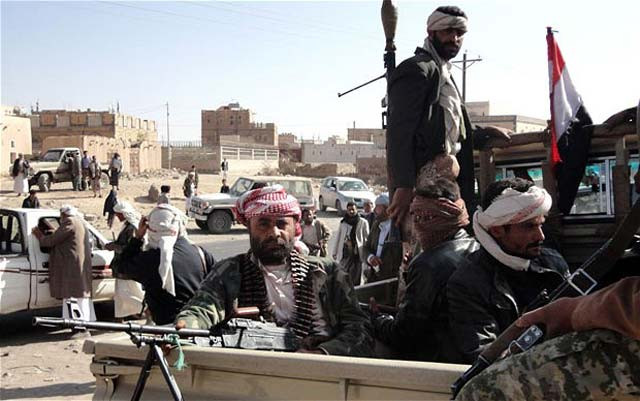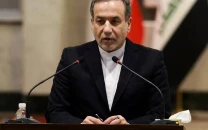Three leaders of Qaeda-linked Tunisia group killed: minister
Najem Gharsalli says militants were "heavyweights" from Tunisia's main extremist group Okba Ibn Nafaa Brigades

PHOTO: AFP
Najem Gharsalli said the three militants were "heavyweights" from the Okba Ibn Nafaa Brigades, Tunisia's main extremist group which had been blamed for the March attack on the Bardo National Museum.
The assault that killed 21 tourists and a policeman was however claimed by the Islamic State militant group.
"The operation carried out on Friday by our security forces in cooperation with the army in the region of Gafsa resulted in the elimination of five dangerous terrorists, including three senior leaders" of the Okba Ibn Nafaa Brigades, Gharsalli said late Sunday.
"They were heavyweights, not ordinary (members)," Gharsalli told a news conference.
The three were named as Tunisians Mourad Gharsalli and Hakim Hazi, and Algerian national Lounis Abou Fath. The other two people killed have not yet been identified.
Gharsalli was one of Tunisia's most wanted terrorists.
The group was plotting to carry out "a wave of operations" and was planning to set up a "camp in the Gafsa (central) region like the one in Chaambi," said the interior minister.
In the past four years, dozens of security forces in Tunisia have been killed in clashes and ambushes attributed to terrorists — mainly in the western Chaambi Mountains on the border with Algeria.
Tunisian authorities have said that Okba brigades chief Lokmane Abou Sakr, who was killed in a special forces raid in Gafsa in March, was behind the attack on the Bardo.
The Islamic State group, however, claimed responsibility for the museum attack as well as a beach massacre last month that left 38 tourists dead.
"There is no presence yet in Tunisia of a structured organisation such as Daesh," the interior minister said, referring to IS by an alternate name.
"But this does not prevent the existence of some elements who have pledged allegiance to Daesh" in Tunisia, he added.
Tunisia has seen a surge in radical Islam since veteran president Zine El Abidine Ben Ali was ousted in a 2011 revolution.


















COMMENTS
Comments are moderated and generally will be posted if they are on-topic and not abusive.
For more information, please see our Comments FAQ